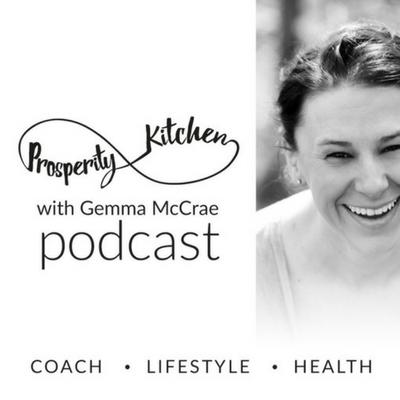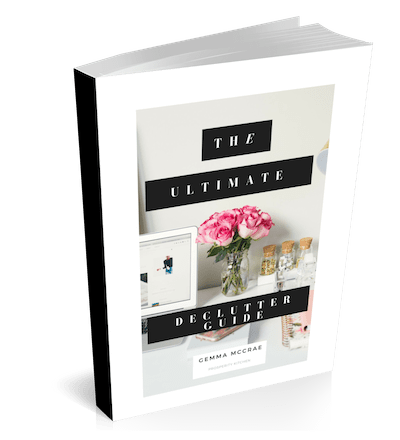In this blog post, Simple Guide To Starting Your Own Business When in Debt; I’m bringing you extracts from an interview I did on my podcast with one of the UK’s leading Coaches, Ruth Kudzi and we both go into the details of how to leave the job (you probably don’t like) and start your own business EVEN when you have debts and big financial commitments.
We also talk about the network you will need to build, the ultimate question to ask yourself if you’re scared to take the leap (in purple) and the biggest mistakes people make.
It’s a corker of a post!
Ready?
Here is the transcript from the interview:
 Prosperity Kitchen: OK. What kind of network does somebody need to build? Who will they need for support?
Ruth: I think having some people who are at a similar level to you is really important. I met most of my, the people that I now turn to for support actually doing it through a group programme about 3 years ago. So having people who are at a similar level to you. You can meet them anywhere, you can meet them in Facebook groups, you can meet them at networking events, you could meet them on Instagram, having those people that are at a similar level to you and will be there and will understand because I’ll tell you what, your normal regular friends will always be there in your life but they won’t understand. They don’t understand what it’s like. That’s just completely out of their reality so having people that get that reality of what it’s like is really important. And I would also say, if possible, if you can work with some people who are further ahead than you, who can mentor you or coach you because, again, that’s really important and, again, that doesn’t need to be formal. It could be informal. It could be people that you meet at events. It could be people that you meet online. You get to decide. You can spend your time online building relationships. You can go to networking and build relationships. You can pay to be in programmes and get a network there. It doesn’t matter but you need to have people that you can take that time to build genuine relationships with. For me, I like that to be in person but I’ve got clients that have got great networks of people that they’re mainly online. So it definitely depends on you.
Prosperity Kitchen: So somebody sitting at home and they want to start their business. They’re desperate to start their business. They don’t like what they’re doing and they feel that their calling is elsewhere but they’ve got debts, mortgages, car payments, credit card debts, you know, the normal. What can they do, or what steps can that person or listener take to move from where they are now to setting up their own business? Just broadly, what steps can they take, bearing in mind there may be financial issues?
Ruth: OK so first of all, drawing up that plan. Understanding how much money they actually need. Even if they’ve got debt or financial commitments, they can still start a business. It’s not like waiting until you’re debt free because your business can help pay off your debt. So get really clear on how much money you need and what that’s going to look like in terms of clients for your business. So do that at the beginning. Understand what your goal is. So set a goal for when you want to get your first client or when you want to leave your job. And then work backwards from that. And think about the things that you really need to think about is, well I would say, always start and this is my bias because there’s two different ways that you can basically but I’m going to talk about the one that’s my bias. I’ll mention the other one. My bias is always to start with the client and work out who you want to create your business for. Who is your ideal client? Who is your niche? And then build something around them. Now I come from a service based background so I’ve always worked in service based businesses. So that’s how a lot of service based businesses work. So you look at who your client is and then you build your programmes, your products, your offers around their needs, their problems, their wants and then, from there, you start building your brand, start speaking to them, do your marketing. So that’s called a market orientated approach. And that, as I said, is really common in more mature markets and service based industries but if you are really innovative and if you have a brand new product, one of my friends is called Cara, she’s got a product called SnoozeShade and this is what she did. Interestingly she’s been doing some press today because she’s had someone copy her but she’s literally created a new product. If you’re doing that, that’s called a product orientated approach. So she created a new product and then took it out to market. Of course it still met needs but that’s when you’ve got a very innovative, different business. So someone like Apple is very product orientated. Well they started off, actually now I say they’re more market orientated, they now look at what the customers want and they create things to meet their needs. At the beginning they were just developing products. So get really clear and when you’ve got really clear on who your client is and their problems and their pain points, understand how you can serve them because it’s all about how you are different. Some people like Coca Cola. Some people like Pepsi. Some people like Karma Cola. It’s to do with their branding and what they stand for so you need to do that for your business as well. And then you need to build an audience. Either your audience or you need to get somebody else to help you build that audience. Now this is going to be different if you’ve got a bricks and mortar coffee shop or if you’re a coach or if you’re making a product. But you need an audience. Now that coffee shop, it might be that your marketing is literally standing at the train station handing out leaflets. That might be your marketing. You might do some digital. You might do some events. You might do some tweeting, local tweeting. You might do things like that. If you’ve got a more online business, you’re marketing strategy’s going to be different but it’s still really important. So, marketing is everything from handing out leaflets to having a TV advert, to doing Facebook ads and everything in between. So you need to really know how you are you going to tell people about your product and how can they buy it from you. Because, fundamentally, that’s what business is.
Prosperity Kitchen: OK. What kind of network does somebody need to build? Who will they need for support?
Ruth: I think having some people who are at a similar level to you is really important. I met most of my, the people that I now turn to for support actually doing it through a group programme about 3 years ago. So having people who are at a similar level to you. You can meet them anywhere, you can meet them in Facebook groups, you can meet them at networking events, you could meet them on Instagram, having those people that are at a similar level to you and will be there and will understand because I’ll tell you what, your normal regular friends will always be there in your life but they won’t understand. They don’t understand what it’s like. That’s just completely out of their reality so having people that get that reality of what it’s like is really important. And I would also say, if possible, if you can work with some people who are further ahead than you, who can mentor you or coach you because, again, that’s really important and, again, that doesn’t need to be formal. It could be informal. It could be people that you meet at events. It could be people that you meet online. You get to decide. You can spend your time online building relationships. You can go to networking and build relationships. You can pay to be in programmes and get a network there. It doesn’t matter but you need to have people that you can take that time to build genuine relationships with. For me, I like that to be in person but I’ve got clients that have got great networks of people that they’re mainly online. So it definitely depends on you.
Prosperity Kitchen: So somebody sitting at home and they want to start their business. They’re desperate to start their business. They don’t like what they’re doing and they feel that their calling is elsewhere but they’ve got debts, mortgages, car payments, credit card debts, you know, the normal. What can they do, or what steps can that person or listener take to move from where they are now to setting up their own business? Just broadly, what steps can they take, bearing in mind there may be financial issues?
Ruth: OK so first of all, drawing up that plan. Understanding how much money they actually need. Even if they’ve got debt or financial commitments, they can still start a business. It’s not like waiting until you’re debt free because your business can help pay off your debt. So get really clear on how much money you need and what that’s going to look like in terms of clients for your business. So do that at the beginning. Understand what your goal is. So set a goal for when you want to get your first client or when you want to leave your job. And then work backwards from that. And think about the things that you really need to think about is, well I would say, always start and this is my bias because there’s two different ways that you can basically but I’m going to talk about the one that’s my bias. I’ll mention the other one. My bias is always to start with the client and work out who you want to create your business for. Who is your ideal client? Who is your niche? And then build something around them. Now I come from a service based background so I’ve always worked in service based businesses. So that’s how a lot of service based businesses work. So you look at who your client is and then you build your programmes, your products, your offers around their needs, their problems, their wants and then, from there, you start building your brand, start speaking to them, do your marketing. So that’s called a market orientated approach. And that, as I said, is really common in more mature markets and service based industries but if you are really innovative and if you have a brand new product, one of my friends is called Cara, she’s got a product called SnoozeShade and this is what she did. Interestingly she’s been doing some press today because she’s had someone copy her but she’s literally created a new product. If you’re doing that, that’s called a product orientated approach. So she created a new product and then took it out to market. Of course it still met needs but that’s when you’ve got a very innovative, different business. So someone like Apple is very product orientated. Well they started off, actually now I say they’re more market orientated, they now look at what the customers want and they create things to meet their needs. At the beginning they were just developing products. So get really clear and when you’ve got really clear on who your client is and their problems and their pain points, understand how you can serve them because it’s all about how you are different. Some people like Coca Cola. Some people like Pepsi. Some people like Karma Cola. It’s to do with their branding and what they stand for so you need to do that for your business as well. And then you need to build an audience. Either your audience or you need to get somebody else to help you build that audience. Now this is going to be different if you’ve got a bricks and mortar coffee shop or if you’re a coach or if you’re making a product. But you need an audience. Now that coffee shop, it might be that your marketing is literally standing at the train station handing out leaflets. That might be your marketing. You might do some digital. You might do some events. You might do some tweeting, local tweeting. You might do things like that. If you’ve got a more online business, you’re marketing strategy’s going to be different but it’s still really important. So, marketing is everything from handing out leaflets to having a TV advert, to doing Facebook ads and everything in between. So you need to really know how you are you going to tell people about your product and how can they buy it from you. Because, fundamentally, that’s what business is.
 Prosperity Kitchen: What about actually leaving the job? What would be your advice?
Ruth: See I’m sitting here smiling because I actually started my business when I was in debt and I had mortgage payments and I was pregnant with my second daughter.
Prosperity Kitchen: Oh my god. So you’re talking about you!
Ruth: So I’m kind of laughing because I had maternity, so I set it up before I went on maternity because I knew what the rules were. I set it up before I went on maternity and then I basically set myself an income target and I was like, if I can make this income every month I can resign from you job and I was able to do that. Now that is quite a risky move because I then resigned with nothing to go to to and then I got married the next May, so it was quite a risky time but I knew that if I didn’t do it it would be difficult for me. In reality, I did still have my husband so if it had all fallen to pieces, yes he could probably have supported us just about. So I did have that. So it is a slightly different situation if you’re on your own. You need to think, am I prepared to take that risk or am I going to wait to know? But I’ve got friends who’ve jumped when they’ve had nothing and they’ve made it work but I don’t think I’d advise anyone to do that unless they’re really feeling it.
Prosperity Kitchen: That’s what I did. I just jumped.
Ruth: Depends on what you’ve got to lose.
Prosperity Kitchen: And I coach people against doing that, don’t do what I did! But having said that it’s turned out brilliantly; but I liked what you’ve just said and you’re talking the talk and you’re also walking the walk so you’ve been there. You’ve done this and you’re an example of somebody who made that leap, the proper way as well. You experimented while still in paid employment and then you set yourself an income target and when you met that income target you knew that was the time to actually transition. So it was black and white. Sorry I interrupted you but carry on. So if somebody is wanting to do this you’ve said, basically, plan financially what you’re going to need. Set yourself goals. Get yourself that client avatar and build your business around that, as in the marketing. Identify how you’re going to differentiate yourself from the competition. It’s basically business 101. And then you’re saying build that audience, the marketing around that research that you’ve done, particularly the avatar. And then you went on to say the reality is, if you’re in that job and you want to get from that job to a business, you just said, which I completely agree with, do it on the side for a little while. Try and set yourself an income target and then when you reach that income target you then have the green light to go. Is that right?
Ruth: Yes. Then you jump. You get the income target and you jump. Or you can be crazy and you can just jump but that is completely you and if you are that person, like this is the whole thing, people have a reality. People’s reality is based on their experiences and their personality and some people, their reality will be that they can’t ever imagine making that leap but other people, their personality and their reality and their experience, for them the right thing is just to jump in.
Prosperity Kitchen: What about actually leaving the job? What would be your advice?
Ruth: See I’m sitting here smiling because I actually started my business when I was in debt and I had mortgage payments and I was pregnant with my second daughter.
Prosperity Kitchen: Oh my god. So you’re talking about you!
Ruth: So I’m kind of laughing because I had maternity, so I set it up before I went on maternity because I knew what the rules were. I set it up before I went on maternity and then I basically set myself an income target and I was like, if I can make this income every month I can resign from you job and I was able to do that. Now that is quite a risky move because I then resigned with nothing to go to to and then I got married the next May, so it was quite a risky time but I knew that if I didn’t do it it would be difficult for me. In reality, I did still have my husband so if it had all fallen to pieces, yes he could probably have supported us just about. So I did have that. So it is a slightly different situation if you’re on your own. You need to think, am I prepared to take that risk or am I going to wait to know? But I’ve got friends who’ve jumped when they’ve had nothing and they’ve made it work but I don’t think I’d advise anyone to do that unless they’re really feeling it.
Prosperity Kitchen: That’s what I did. I just jumped.
Ruth: Depends on what you’ve got to lose.
Prosperity Kitchen: And I coach people against doing that, don’t do what I did! But having said that it’s turned out brilliantly; but I liked what you’ve just said and you’re talking the talk and you’re also walking the walk so you’ve been there. You’ve done this and you’re an example of somebody who made that leap, the proper way as well. You experimented while still in paid employment and then you set yourself an income target and when you met that income target you knew that was the time to actually transition. So it was black and white. Sorry I interrupted you but carry on. So if somebody is wanting to do this you’ve said, basically, plan financially what you’re going to need. Set yourself goals. Get yourself that client avatar and build your business around that, as in the marketing. Identify how you’re going to differentiate yourself from the competition. It’s basically business 101. And then you’re saying build that audience, the marketing around that research that you’ve done, particularly the avatar. And then you went on to say the reality is, if you’re in that job and you want to get from that job to a business, you just said, which I completely agree with, do it on the side for a little while. Try and set yourself an income target and then when you reach that income target you then have the green light to go. Is that right?
Ruth: Yes. Then you jump. You get the income target and you jump. Or you can be crazy and you can just jump but that is completely you and if you are that person, like this is the whole thing, people have a reality. People’s reality is based on their experiences and their personality and some people, their reality will be that they can’t ever imagine making that leap but other people, their personality and their reality and their experience, for them the right thing is just to jump in.

 So in summary, we advise:
So in summary, we advise:
 Gemma is a leading Life Coach & Business Coach, Award Winning Podcaster and the owner of Prosperity Kitchen. Regularly featured in the national press, Gemma is one of the “go to” people on Life Coaching & Business Coaching. Gemma counts VIPs, High Net Worth Individuals, Entrepreneurs, Career Professionals, Stay at Home Parents and all manner of other amazing people as her clients.
She specialises in Personal Development, Career Coaching, Employee Coaching, Executive Coaching, Confidence, Motivation, Health and Small Business Coaching
Gemma is a leading Life Coach & Business Coach, Award Winning Podcaster and the owner of Prosperity Kitchen. Regularly featured in the national press, Gemma is one of the “go to” people on Life Coaching & Business Coaching. Gemma counts VIPs, High Net Worth Individuals, Entrepreneurs, Career Professionals, Stay at Home Parents and all manner of other amazing people as her clients.
She specialises in Personal Development, Career Coaching, Employee Coaching, Executive Coaching, Confidence, Motivation, Health and Small Business Coaching
 Ruth Kudzi is a business mentor, mindset coach and best-selling author who has worked with 1000s of clients worldwide. She combines practical business skills with a MA in Psychology and numerous coaching qualifications including NLP to help her clients build businesses they love.
Ruth Kudzi is a business mentor, mindset coach and best-selling author who has worked with 1000s of clients worldwide. She combines practical business skills with a MA in Psychology and numerous coaching qualifications including NLP to help her clients build businesses they love.
 Prosperity Kitchen: OK. What kind of network does somebody need to build? Who will they need for support?
Ruth: I think having some people who are at a similar level to you is really important. I met most of my, the people that I now turn to for support actually doing it through a group programme about 3 years ago. So having people who are at a similar level to you. You can meet them anywhere, you can meet them in Facebook groups, you can meet them at networking events, you could meet them on Instagram, having those people that are at a similar level to you and will be there and will understand because I’ll tell you what, your normal regular friends will always be there in your life but they won’t understand. They don’t understand what it’s like. That’s just completely out of their reality so having people that get that reality of what it’s like is really important. And I would also say, if possible, if you can work with some people who are further ahead than you, who can mentor you or coach you because, again, that’s really important and, again, that doesn’t need to be formal. It could be informal. It could be people that you meet at events. It could be people that you meet online. You get to decide. You can spend your time online building relationships. You can go to networking and build relationships. You can pay to be in programmes and get a network there. It doesn’t matter but you need to have people that you can take that time to build genuine relationships with. For me, I like that to be in person but I’ve got clients that have got great networks of people that they’re mainly online. So it definitely depends on you.
Prosperity Kitchen: So somebody sitting at home and they want to start their business. They’re desperate to start their business. They don’t like what they’re doing and they feel that their calling is elsewhere but they’ve got debts, mortgages, car payments, credit card debts, you know, the normal. What can they do, or what steps can that person or listener take to move from where they are now to setting up their own business? Just broadly, what steps can they take, bearing in mind there may be financial issues?
Ruth: OK so first of all, drawing up that plan. Understanding how much money they actually need. Even if they’ve got debt or financial commitments, they can still start a business. It’s not like waiting until you’re debt free because your business can help pay off your debt. So get really clear on how much money you need and what that’s going to look like in terms of clients for your business. So do that at the beginning. Understand what your goal is. So set a goal for when you want to get your first client or when you want to leave your job. And then work backwards from that. And think about the things that you really need to think about is, well I would say, always start and this is my bias because there’s two different ways that you can basically but I’m going to talk about the one that’s my bias. I’ll mention the other one. My bias is always to start with the client and work out who you want to create your business for. Who is your ideal client? Who is your niche? And then build something around them. Now I come from a service based background so I’ve always worked in service based businesses. So that’s how a lot of service based businesses work. So you look at who your client is and then you build your programmes, your products, your offers around their needs, their problems, their wants and then, from there, you start building your brand, start speaking to them, do your marketing. So that’s called a market orientated approach. And that, as I said, is really common in more mature markets and service based industries but if you are really innovative and if you have a brand new product, one of my friends is called Cara, she’s got a product called SnoozeShade and this is what she did. Interestingly she’s been doing some press today because she’s had someone copy her but she’s literally created a new product. If you’re doing that, that’s called a product orientated approach. So she created a new product and then took it out to market. Of course it still met needs but that’s when you’ve got a very innovative, different business. So someone like Apple is very product orientated. Well they started off, actually now I say they’re more market orientated, they now look at what the customers want and they create things to meet their needs. At the beginning they were just developing products. So get really clear and when you’ve got really clear on who your client is and their problems and their pain points, understand how you can serve them because it’s all about how you are different. Some people like Coca Cola. Some people like Pepsi. Some people like Karma Cola. It’s to do with their branding and what they stand for so you need to do that for your business as well. And then you need to build an audience. Either your audience or you need to get somebody else to help you build that audience. Now this is going to be different if you’ve got a bricks and mortar coffee shop or if you’re a coach or if you’re making a product. But you need an audience. Now that coffee shop, it might be that your marketing is literally standing at the train station handing out leaflets. That might be your marketing. You might do some digital. You might do some events. You might do some tweeting, local tweeting. You might do things like that. If you’ve got a more online business, you’re marketing strategy’s going to be different but it’s still really important. So, marketing is everything from handing out leaflets to having a TV advert, to doing Facebook ads and everything in between. So you need to really know how you are you going to tell people about your product and how can they buy it from you. Because, fundamentally, that’s what business is.
Prosperity Kitchen: OK. What kind of network does somebody need to build? Who will they need for support?
Ruth: I think having some people who are at a similar level to you is really important. I met most of my, the people that I now turn to for support actually doing it through a group programme about 3 years ago. So having people who are at a similar level to you. You can meet them anywhere, you can meet them in Facebook groups, you can meet them at networking events, you could meet them on Instagram, having those people that are at a similar level to you and will be there and will understand because I’ll tell you what, your normal regular friends will always be there in your life but they won’t understand. They don’t understand what it’s like. That’s just completely out of their reality so having people that get that reality of what it’s like is really important. And I would also say, if possible, if you can work with some people who are further ahead than you, who can mentor you or coach you because, again, that’s really important and, again, that doesn’t need to be formal. It could be informal. It could be people that you meet at events. It could be people that you meet online. You get to decide. You can spend your time online building relationships. You can go to networking and build relationships. You can pay to be in programmes and get a network there. It doesn’t matter but you need to have people that you can take that time to build genuine relationships with. For me, I like that to be in person but I’ve got clients that have got great networks of people that they’re mainly online. So it definitely depends on you.
Prosperity Kitchen: So somebody sitting at home and they want to start their business. They’re desperate to start their business. They don’t like what they’re doing and they feel that their calling is elsewhere but they’ve got debts, mortgages, car payments, credit card debts, you know, the normal. What can they do, or what steps can that person or listener take to move from where they are now to setting up their own business? Just broadly, what steps can they take, bearing in mind there may be financial issues?
Ruth: OK so first of all, drawing up that plan. Understanding how much money they actually need. Even if they’ve got debt or financial commitments, they can still start a business. It’s not like waiting until you’re debt free because your business can help pay off your debt. So get really clear on how much money you need and what that’s going to look like in terms of clients for your business. So do that at the beginning. Understand what your goal is. So set a goal for when you want to get your first client or when you want to leave your job. And then work backwards from that. And think about the things that you really need to think about is, well I would say, always start and this is my bias because there’s two different ways that you can basically but I’m going to talk about the one that’s my bias. I’ll mention the other one. My bias is always to start with the client and work out who you want to create your business for. Who is your ideal client? Who is your niche? And then build something around them. Now I come from a service based background so I’ve always worked in service based businesses. So that’s how a lot of service based businesses work. So you look at who your client is and then you build your programmes, your products, your offers around their needs, their problems, their wants and then, from there, you start building your brand, start speaking to them, do your marketing. So that’s called a market orientated approach. And that, as I said, is really common in more mature markets and service based industries but if you are really innovative and if you have a brand new product, one of my friends is called Cara, she’s got a product called SnoozeShade and this is what she did. Interestingly she’s been doing some press today because she’s had someone copy her but she’s literally created a new product. If you’re doing that, that’s called a product orientated approach. So she created a new product and then took it out to market. Of course it still met needs but that’s when you’ve got a very innovative, different business. So someone like Apple is very product orientated. Well they started off, actually now I say they’re more market orientated, they now look at what the customers want and they create things to meet their needs. At the beginning they were just developing products. So get really clear and when you’ve got really clear on who your client is and their problems and their pain points, understand how you can serve them because it’s all about how you are different. Some people like Coca Cola. Some people like Pepsi. Some people like Karma Cola. It’s to do with their branding and what they stand for so you need to do that for your business as well. And then you need to build an audience. Either your audience or you need to get somebody else to help you build that audience. Now this is going to be different if you’ve got a bricks and mortar coffee shop or if you’re a coach or if you’re making a product. But you need an audience. Now that coffee shop, it might be that your marketing is literally standing at the train station handing out leaflets. That might be your marketing. You might do some digital. You might do some events. You might do some tweeting, local tweeting. You might do things like that. If you’ve got a more online business, you’re marketing strategy’s going to be different but it’s still really important. So, marketing is everything from handing out leaflets to having a TV advert, to doing Facebook ads and everything in between. So you need to really know how you are you going to tell people about your product and how can they buy it from you. Because, fundamentally, that’s what business is.
 Prosperity Kitchen: What about actually leaving the job? What would be your advice?
Ruth: See I’m sitting here smiling because I actually started my business when I was in debt and I had mortgage payments and I was pregnant with my second daughter.
Prosperity Kitchen: Oh my god. So you’re talking about you!
Ruth: So I’m kind of laughing because I had maternity, so I set it up before I went on maternity because I knew what the rules were. I set it up before I went on maternity and then I basically set myself an income target and I was like, if I can make this income every month I can resign from you job and I was able to do that. Now that is quite a risky move because I then resigned with nothing to go to to and then I got married the next May, so it was quite a risky time but I knew that if I didn’t do it it would be difficult for me. In reality, I did still have my husband so if it had all fallen to pieces, yes he could probably have supported us just about. So I did have that. So it is a slightly different situation if you’re on your own. You need to think, am I prepared to take that risk or am I going to wait to know? But I’ve got friends who’ve jumped when they’ve had nothing and they’ve made it work but I don’t think I’d advise anyone to do that unless they’re really feeling it.
Prosperity Kitchen: That’s what I did. I just jumped.
Ruth: Depends on what you’ve got to lose.
Prosperity Kitchen: And I coach people against doing that, don’t do what I did! But having said that it’s turned out brilliantly; but I liked what you’ve just said and you’re talking the talk and you’re also walking the walk so you’ve been there. You’ve done this and you’re an example of somebody who made that leap, the proper way as well. You experimented while still in paid employment and then you set yourself an income target and when you met that income target you knew that was the time to actually transition. So it was black and white. Sorry I interrupted you but carry on. So if somebody is wanting to do this you’ve said, basically, plan financially what you’re going to need. Set yourself goals. Get yourself that client avatar and build your business around that, as in the marketing. Identify how you’re going to differentiate yourself from the competition. It’s basically business 101. And then you’re saying build that audience, the marketing around that research that you’ve done, particularly the avatar. And then you went on to say the reality is, if you’re in that job and you want to get from that job to a business, you just said, which I completely agree with, do it on the side for a little while. Try and set yourself an income target and then when you reach that income target you then have the green light to go. Is that right?
Ruth: Yes. Then you jump. You get the income target and you jump. Or you can be crazy and you can just jump but that is completely you and if you are that person, like this is the whole thing, people have a reality. People’s reality is based on their experiences and their personality and some people, their reality will be that they can’t ever imagine making that leap but other people, their personality and their reality and their experience, for them the right thing is just to jump in.
Prosperity Kitchen: What about actually leaving the job? What would be your advice?
Ruth: See I’m sitting here smiling because I actually started my business when I was in debt and I had mortgage payments and I was pregnant with my second daughter.
Prosperity Kitchen: Oh my god. So you’re talking about you!
Ruth: So I’m kind of laughing because I had maternity, so I set it up before I went on maternity because I knew what the rules were. I set it up before I went on maternity and then I basically set myself an income target and I was like, if I can make this income every month I can resign from you job and I was able to do that. Now that is quite a risky move because I then resigned with nothing to go to to and then I got married the next May, so it was quite a risky time but I knew that if I didn’t do it it would be difficult for me. In reality, I did still have my husband so if it had all fallen to pieces, yes he could probably have supported us just about. So I did have that. So it is a slightly different situation if you’re on your own. You need to think, am I prepared to take that risk or am I going to wait to know? But I’ve got friends who’ve jumped when they’ve had nothing and they’ve made it work but I don’t think I’d advise anyone to do that unless they’re really feeling it.
Prosperity Kitchen: That’s what I did. I just jumped.
Ruth: Depends on what you’ve got to lose.
Prosperity Kitchen: And I coach people against doing that, don’t do what I did! But having said that it’s turned out brilliantly; but I liked what you’ve just said and you’re talking the talk and you’re also walking the walk so you’ve been there. You’ve done this and you’re an example of somebody who made that leap, the proper way as well. You experimented while still in paid employment and then you set yourself an income target and when you met that income target you knew that was the time to actually transition. So it was black and white. Sorry I interrupted you but carry on. So if somebody is wanting to do this you’ve said, basically, plan financially what you’re going to need. Set yourself goals. Get yourself that client avatar and build your business around that, as in the marketing. Identify how you’re going to differentiate yourself from the competition. It’s basically business 101. And then you’re saying build that audience, the marketing around that research that you’ve done, particularly the avatar. And then you went on to say the reality is, if you’re in that job and you want to get from that job to a business, you just said, which I completely agree with, do it on the side for a little while. Try and set yourself an income target and then when you reach that income target you then have the green light to go. Is that right?
Ruth: Yes. Then you jump. You get the income target and you jump. Or you can be crazy and you can just jump but that is completely you and if you are that person, like this is the whole thing, people have a reality. People’s reality is based on their experiences and their personality and some people, their reality will be that they can’t ever imagine making that leap but other people, their personality and their reality and their experience, for them the right thing is just to jump in.

Looking to build up your confidence levels but not sure how? Got a particular area of your life where you need more confidence? If you do then click here and watch my FREE video on How To Build Confidence!
Prosperity Kitchen: Yeah do you know what’s funny? Was my personality. I was so conscientious and risk averse but something was telling me, I listened to my gut… Ruth: Which is never wrong. Prosperity Kitchen: Everyone’s circumstances are different and you have to work with what you’ve got and for some people, leaving a job and starting a business is not the reality straight away. They have to work up to that for various reasons, but what I say to those people is, ask yourself the question ‘what is the consequence of me staying and doing what I’m doing’. And that’s normally quite a big eye-opener. Ruth: Yes I love that question. It’s a great question. Prosperity Kitchen: Perfect. What mistakes do you see frequently being made? Ruth: Do you know the biggest mistake that I see and I see it time and time again and it drives me slightly insane is people giving up too soon. Oh well I’ve been in business for 3 months and I don’t have a client therefore I must be a failure. I’m going to give up. Or I’ve been running a Facebook group for 2 weeks and I don’t have a client. Literally, people giving up too soon and I’m going to give you an example from today, well yesterday, so I’ve got some training tomorrow. Some free training. It’s part of a launch. I had a target of having at least 300 people signed up. Yesterday morning I had 45 on the 2 trainings and I was like, OK. So yesterday evening when I got home I sent out lots of messages. I did lots of different things. This morning I’ve got 200 people sign up within about 12 hours. And now I’m close to 300. I’m probably now over 300. I could have sat there and said this isn’t going to happen. I took action. I tested different things. I did different things. Some things didn’t work but if you give up so easily then you’re not going to be successful. I always say, until it’s a no it’s not a no. And I’m not pushy with sales and I don’t always do this with sales. I do it more with yourself. Until it’s a no it’s not a no. If that’s your big goal. Until it’s literally midnight on the last day of the month and you haven’t hit your financial goal or whatever goal it may be, you’re still working towards it. So still have that mindset because lots of people, I’ve got clients who say ‘oh I had this goal for this month’ and it’s half way through the month and they’re like ‘oh I’m not going to hit it’. And I’m like ‘well you’re not because you’re not in the right mindset’. So giving up too easily. If we take ownership for everything, then we’re much more likely to be successful. If we say, OK in reality I didn’t do that therefore I’m not, you know, I didn’t put my 100% in, therefore next time I will, we’re much more likely to be successful but when people are starting to blame others or blame other things, you know, you don’t see Richard Branson or Oprah saying ‘oh well, it was their fault that I didn’t do that’. That doesn’t happen. So take ownership and get on with it. Prosperity Kitchen: It’s so true. I was smiling. I think the big one there is, again, it goes back to resilience. You’ve got to have the staying power because unless you are one of those very small percentage of people that, literally, rocket straight away, you do have to work at it and you are going to have bad days. You’ve got to be able just to ride it. And Ruth you’re just the perfect example there of somebody who did that. You had 44 people signed up. You needed 300. You didn’t moan. You didn’t sulk. You’ve gone home and you’ve made things happen. And that’s true business. Go on… Ruth: Yes and I’m sure that I’m going to get over 300 now but I made it a non-negotiable. Like, this is going to happen. And yeah I think that’s the thing. I think if you go all in it will happen. If you fanny about at the edges it’s not going to happen.If you’re not all in. If you’re saying ‘I’m going to try this’. You have to love what you’re going to do and I know there was an article recently about turning your passion into a business and saying passion doesn’t last for ever. No but if you like what you’re doing, it’s a lot easier to be enthused about it. If it’s just for the money, work in a corporate. Prosperity Kitchen: Yeah and also passion isn’t necessarily a thing. It’s a feeling anyway. It’s about harnessing…. Ruth: It is. It’s a feeling. Prosperity Kitchen: Yeah. Go on about that. Exactly and that’s probably the number 1 mistake that I see in the small business side is you have to work at it and it’s going to take a bit of time for you to get there and you’re not necessarily going to have people beating down your door week 1, week 2, month 2, even year 2 sometimes. You have to be realistic and do your due diligence before you start, to work out what other people in similar situations, when they started to break even would be my advice.Full Podcast Interview with Ruth
And the interview continued onto how to leave your job to start a business and you can listen to the full interview here.Summary – Step by Step Guide To Starting Your Own Business When in Debt
 So in summary, we advise:
So in summary, we advise:
- Networks are vital and how your network needs to include those people on the same journey as you.
- Get a Coach or Mentor – hands down you will need one.
- Drawing up a financial plan is essential.
- Understand who your customer is a building an avatar.
- Marketing only to that avatar.
- Establish how risk adverse you are and then decide how and when to take the leap.
- Be patient.
- Be resilient.
- Persevere.
BIO
 Gemma is a leading Life Coach & Business Coach, Award Winning Podcaster and the owner of Prosperity Kitchen. Regularly featured in the national press, Gemma is one of the “go to” people on Life Coaching & Business Coaching. Gemma counts VIPs, High Net Worth Individuals, Entrepreneurs, Career Professionals, Stay at Home Parents and all manner of other amazing people as her clients.
She specialises in Personal Development, Career Coaching, Employee Coaching, Executive Coaching, Confidence, Motivation, Health and Small Business Coaching
Gemma is a leading Life Coach & Business Coach, Award Winning Podcaster and the owner of Prosperity Kitchen. Regularly featured in the national press, Gemma is one of the “go to” people on Life Coaching & Business Coaching. Gemma counts VIPs, High Net Worth Individuals, Entrepreneurs, Career Professionals, Stay at Home Parents and all manner of other amazing people as her clients.
She specialises in Personal Development, Career Coaching, Employee Coaching, Executive Coaching, Confidence, Motivation, Health and Small Business Coaching
 Ruth Kudzi is a business mentor, mindset coach and best-selling author who has worked with 1000s of clients worldwide. She combines practical business skills with a MA in Psychology and numerous coaching qualifications including NLP to help her clients build businesses they love.
Ruth Kudzi is a business mentor, mindset coach and best-selling author who has worked with 1000s of clients worldwide. She combines practical business skills with a MA in Psychology and numerous coaching qualifications including NLP to help her clients build businesses they love.
Ruth works with coaches, consultants and service providers to help them build and scale their businesses and has been seen in The Metro, Women & Home, The Guardian, Psychologies, Thrive Global, Huffington Post and Business Insider.
Other blogs that you may like are:
5 Signs You Need To Change Your Job Now
The Most Powerful Motivators I Know
6 Tips To Turn Your Life Around When Things Go Wrong
Gemma
x







